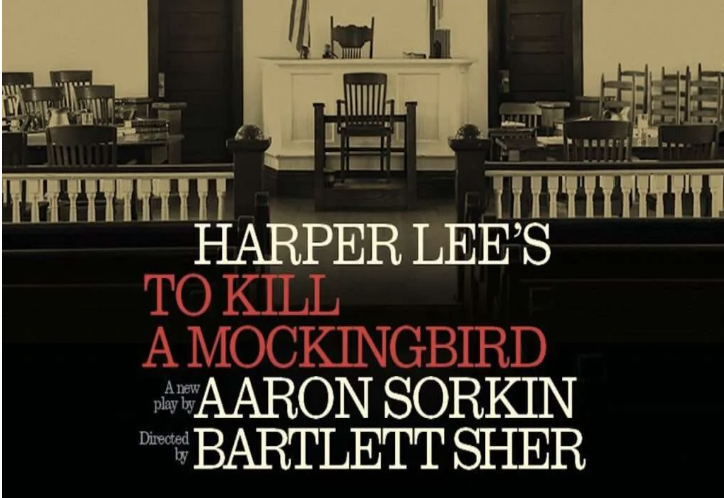The play debuted at Shubert Broadway Theatre in 2018. In its 7-year life-span, it has racked up names as big as Stranger Things star Matthew Modine. As the Political Right continues to rise, Lee’s historic tale of a fight for justice in the face of systemic, institutionalized inequality is a more necessary story than ever.
I love the arts. The big-stage was doing a theatreification of the modern classic that nudged me into applying for a literature degree. Enthusiastic and nostalgically enthralled, I booked my ticket. I needed to see creative diligence; my expectations were far from humble. In regards to Sorkin’s storytelling, my expectations were met; however, parts of its execution were poor. Albeit minor nit-picking, I have some unsatisfied commentary.
I have little to protest against the cast and good-ole’ acting. Returning to the role, Richard Coyle was – unsurprisingly – convincing in a distinctly deliberate contemporary rendition of Atticus Finch. Moving beyond the trope of White saviourhood, Coyle commanded the stage without an Atticus-centric style of racial privilege. As Coyle himself put it, in an interview with Phill Hewitt, Sorkin’s Atticus is a ‘kind of hero’, which includes elements of the more nuanced and openly flawed version of himself found in Lee’s less popular work The Watchmen.
The most striking performance was the brilliance of Andrea Davy as Calpurnia. Davy excellently embodied Calpurnia’s condensed and festering contempt towards Atticus for claiming she should be thankful – as a Black woman – that he took on Tom Robinson’s case. Particularly at the peak of her on-stage presence, Davy’s Calpurnia manifested the frustration of marginalized communities, who as victims, seemingly owe White individuals for acts of humanity. Calpurnia treads lightly in the argumentative spotlight. The culmination of Davy and Coyle’s on-stage relationship brings the audience back to earth. Sorkin ensures our imaginations do not run wild with the extent of progression, we are reminded Calpurnia is limited in her free-speech, and that Atticus is very much her domestic master, her societal superior. In reference to current political trends, I think Sorkin utilizes this dynamic to show surface-level ‘wins’ – like Calpurnia’s integration into the Finch family – conceal larger systems of oppression that are not yet finished.
Scout is retained as a narrative voice. Yet, Sorkin allows her brother Jim to speak to the audience alongside her. This was an interesting addition. I am not necessarily certain of the motive behind it. Perhaps it was another element of Sorkin’s strife to displace the childlike-admiration often attributed to Atticus, to push the audience to question further the subjectivity of perception?
The movement of stage-props was sloppy and disruptive, as minor and major members of the cast blatantly ran around in circles. Most of this stemmed from Sorkin’s choice to break up the court-scene throughout the show. Ultimately, it stole from the play’s captivating pace and was a constant here-there-and-everywhere reminder of the fictitious nature of what one was watching. Sorkin and Sher had a good thing going, and this element unsteadied it all. If the goal is to keep the audience fixated, I was constantly unfixed.
Furthermore, the projection of speech was inadequate at times. Mostly from Dylan Malyn’s Dill Harris and Evie Hargreaves’ Mayella Ewell. Granted, I was in the gallery and Mayella Ewell is a notably submissive and meek character. Slack aside, the audience should not struggle to make out lines, regardless of who is speaking or where they are situated. This was another clumsy blockade to the looming potential of an all-round successful show. Frankly, Sorkin’s To Kill a Mockingbird needed to brush up on the finer touches. There are definitely aspects to be re-thought, re-visioned and re-worked. Nevertheless, it was an enjoyable production. Talent was prevalent in every member of the cast and it was showcased well. Most importantly, Sorkin did diligence, and shone light on topics of thought that must be considered by his audiences and beyond.

Leave a Reply